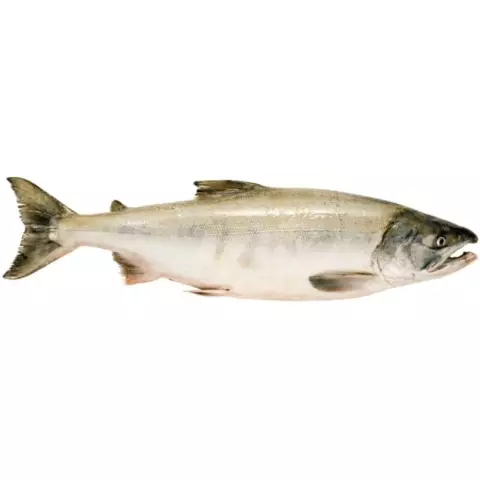- Author Rachel Wainwright wainwright@abchealthonline.com.
- Public 2023-12-15 07:39.
- Last modified 2025-11-02 20:14.
Quail eggs
Quail eggs are eggs of quails - small birds of the order of chickens, having a spotted plumage color. The peculiarity of quails is their high body temperature - about 42 degrees Celsius, due to which the bird is very resistant to the effects of various kinds of infections. The absence of the need for vaccination, as well as the presence of small "breathing" holes in the shell of quail eggs, preventing the risks of salmonellosis infection, is the reason for the safety and environmental friendliness of the product.
The ratio of BJU in the product

Source: depositphotos.com How to burn 168 kcal?
| Walking | 42 minutes |
| Jogging | 19 minutes |
| Swimming | 14 minutes |
| A bike | 24 minutes |
| Aerobics | 34 minutes |
| Household chores | 56 minutes |
Quail eggs have a unique susceptibility to long-term storage: they can retain their nutritional and taste qualities when kept for a month at room temperature and for about 60 days in the refrigerator.
The difference between quail eggs and chicken eggs lies in their tiny size (1 quail egg weighs about 10 grams), a specific color (in a small brown speck) and a more valuable composition: despite the fact that this egg is five times smaller than a chicken egg, the content of such eggs is irreplaceable for humans. the body of macronutrients like phosphorus, iron and calcium in the quail egg is much higher.
The benefits of quail eggs
The quail egg is a real storehouse of vitamins and dietary supplements, helping to cure and prevent many well-known diseases.
The immunomodulatory properties of quail eggs make it possible to include this product in the diet of sick and weakened people. In Japan, for example, there is a healthy tradition: serving two quail eggs for breakfast in kindergartens and schools. The vitamin-protein-mineral complex, which is part of quail eggs, helps to activate the work of brain cells, which contributes to its better development.
One quail egg, on average, consists of 12-14% protein and a complex of vitamins and minerals.
Vitamin B1, which is part of quail eggs, serves as a means of stimulating the digestive tract, increasing appetite, vitality, allowing to heal muscle weakness, nausea, constipation, and rapid fatigue.
Vitamin B2 improves metabolism, maintains muscles in working condition, promotes growth processes in children.
Nicotinic acid (vitamin PP), which is not destroyed by heat treatment, treats disorders of the nervous system, peeling of the skin, improves the functioning of the liver and pancreas.
Carotenoids prevent the occurrence of "night blindness", inflammatory diseases of the mucous membranes.
Calcium prevents the appearance of rickets, promotes a healthy state of the musculoskeletal system, and normalizes the activity of the heart.
The high phosphorus content determines the properties of quail eggs to saturate the prostate gland in men with nutrients, restoring potency, according to Bulgarian scientists, better than drugs.
Also, the benefits of quail eggs are due to the absence of high doses of cholesterol in their composition, due to which the appearance of atherosclerotic plaques is inhibited, obesity is prevented, hemoglobin in the blood rises and blood pressure normalizes.
Unlike chicken eggs, quail eggs do not cause allergies; in addition, they also contribute to its cure with the help of a special protein - ovomoccid, secreted from quail eggs for the production of antiallergic drugs.
The lysozyme contained in quail eggs has a negative effect on the development of cancer cells, and also promotes the elimination of radionuclides from the body's tissues - for this reason, quail eggs are recommended for use by people exposed to high radioactive radiation.
The beneficial properties of quail eggs extend to all human organs, helping to heal diseases of the liver, kidneys, heart, thyroid gland, stomach, gall bladder, and nervous system. Regular consumption of quail eggs gives good results in the treatment of tuberculosis, diabetes mellitus, bronchial asthma, epilepsy, vegetative-vascular dystonia.
Quail eggs are also useful for women's health: the product improves the condition of a woman during pregnancy, relieves toxicosis, enriches the body with vitamins, trace elements and amino acids, both during gestation and in the postpartum period, as well as during breastfeeding, increasing lactation.

Calorie content and nutritional value of quail eggs
The calorie content of 100 grams of the edible part of quail eggs is 168 kcal. Of them:
- Protein - 11.9 g;
- Fat - 13.1 g;
- Carbohydrates - 0.6 g;
- Saturated fatty acids - 3.7 g;
- Cholesterol - 600 mg;
- Mono- and disaccharides - 0.6 g;
- Calcium - 54 mg;
- Sodium - 115 mg;
- Magnesium - 32 mg;
- Phosphorus - 218 mg;
- Chlorine - 147 mg;
- Sulfur - 124 mg;
- Iron - 3.2 mg;
- Copper - 112 mcg;
- Chromium - 14 mcg;
- Manganese - 0.03 mg;
- Molybdenum - 2 mcg;
- Cobalt - 14 mcg.
Quail eggs harm
Despite the fact that the cholesterol content in quail eggs is several times less than in chicken eggs, you should not eat more than five quail eggs a day for people suffering from atherosclerosis and diabetes.
It has been proven that causative agents of intestinal infections are less often present in the inner contents of a quail egg - however, this does not mean that salmonellosis bacteria avoid this product altogether. The fragile shell of quail eggs is easily damaged, and through the smallest cracks, the infection can still get inside. In order to prevent the risks of salmonellosis infection, it is necessary to subject the product to heat treatment before use and make sure that the quail eggs on your table are fresh.
Of course, the harm of quail eggs is much less than their benefit. However, despite the fact that quail eggs contain a lot of protein, it makes no sense to abuse this product: it will be difficult for the body to digest large amounts of protein overnight. There is an opinion that for weight loss it is necessary to consume about 200-300 quail eggs. So, you should not "work ahead of the curve" - the optimal number of quail eggs that can be consumed per day without harm to health is 3-4 pieces for an adult, 2 pieces for a child.
YouTube video related to the article:
Found a mistake in the text? Select it and press Ctrl + Enter.






